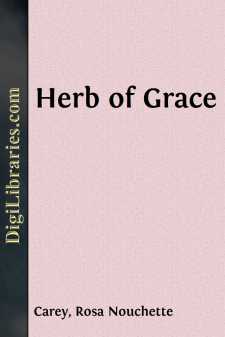Literary Collections
- American 84
- Ancient, Classical & Medieval 14
- Asian 1
- Australian & Oceanian 1
- Canadian 55
- Continental European 121
- English, Irish, Scottish, Welsh 179
- Essays 160
- General 24
- Letters 46
- Middle Eastern 1
Literary Collections Books
Sort by:
THERE'S PIPPINS AND CHEESE TO COME There's Pippins and Cheese To Come In my noonday quest for food, if the day is fine, it is my habit to shun the nearer places of refreshment. I take the air and stretch myself. Like Eve's serpent I go upright for a bit. Yet if time presses, there may be had next door a not unsavory stowage. A drinking bar is nearest to the street where its polished...
more...
My Dearest Carreta, I arrived this day at Venice, and though I am exceedingly tired I hasten to write a line to inform you of my well-being. I am now making for home as fast as possible, and I have now nothing to detain me. Since I wrote to you last I have been again in quarantine for two days and a half at Trieste, but I am glad to say that I shall no longer be detained on that account. I was...
more...
CHAPTER I Our adventures hover round us like bees round the hive when preparing to swarm.—MAETERLINCK. From boyhood Malcolm Herrick had been a lover of the picturesque. In secret he prided himself on possessing the artistic faculty, and yet, except in the nursery, he had never drawn a line, or later on spoilt canvas and daubed himself in oils under the idea that he was an embryo Millais or Turner....
more...
I. THE OUTSET They first met in Boston, but the match was made in Europe, where they afterwards saw each other; whither, indeed, he followed her; and there the match was also broken off. Why it was broken off, and why it was renewed after a lapse of years, is part of quite a long love-story, which I do not think myself qualified to rehearse, distrusting my fitness for a sustained or involved narration;...
more...
by:
Emma Lazarus
One hesitates to lift the veil and throw the light upon a life so hidden and a personality so withdrawn as that of Emma Lazarus; but while her memory is fresh, and the echo of her songs still lingers in these pages, we feel it a duty to call up her presence once more, and to note the traits that made it remarkable and worthy to shine out clearly before the world. Of dramatic episode or climax in her...
more...
by:
Alphonse Daudet
EPISODE THE FIRST, IN TARASCON I. The Garden Round the Giant Trees. MY first visit to Tartarin of Tarascon has remained a never-to-be-forgotten date in my life; although quite ten or a dozen years ago, I remember it better than yesterday. At that time the intrepid Tartarin lived in the third house on the left as the town begins, on the Avignon road. A pretty little villa in the local style, with a...
more...
by:
Ralph Connor
THE CITY ON THE PLAIN Not far from the centre of the American Continent, midway between the oceans east and west, midway between the Gulf and the Arctic Sea, on the rim of a plain, snow swept in winter, flower decked in summer, but, whether in winter or in summer, beautiful in its sunlit glory, stands Winnipeg, the cosmopolitan capital of the last of the Anglo-Saxon Empires,—Winnipeg, City of the...
more...
OF COMPANIONS AND FLATTERERS An old acquaintance who met me this morning seemed overjoyed to see me, and told me I looked as well as he had known me do these forty years; but, continued he, not quite the man you were when we visited together at Lady Brightly's. Oh! Isaac, those days are over. Do you think there are any such fine creatures now living as we then conversed with? He went on with a...
more...
I The bright pale February sunlight lay on the little court of Beaufort College, Cambridge, on the old dull-red smoke-stained brick, the stone mullions and mouldings, the Hall oriel, the ivied buttresses and battlements, the turrets, the tiled roofs, the quaint chimneys, and the lead-topped cupola over all. Half the court was in shadow. It was incredibly picturesque, but it had somehow the look of a...
more...
by:
William Carleton
CHAPTER I. A Mail-coach by Night, and a Bit of Moonshine. It has been long observed, that every season sent by the Almighty has its own peculiar beauties; yet, although this is felt to be universally true—just as we know the sun shines, or that we cannot breathe without air—still we are all certain that even the same seasons have brief periods when these beauties are more sensibly felt, and diffuse...
more...











